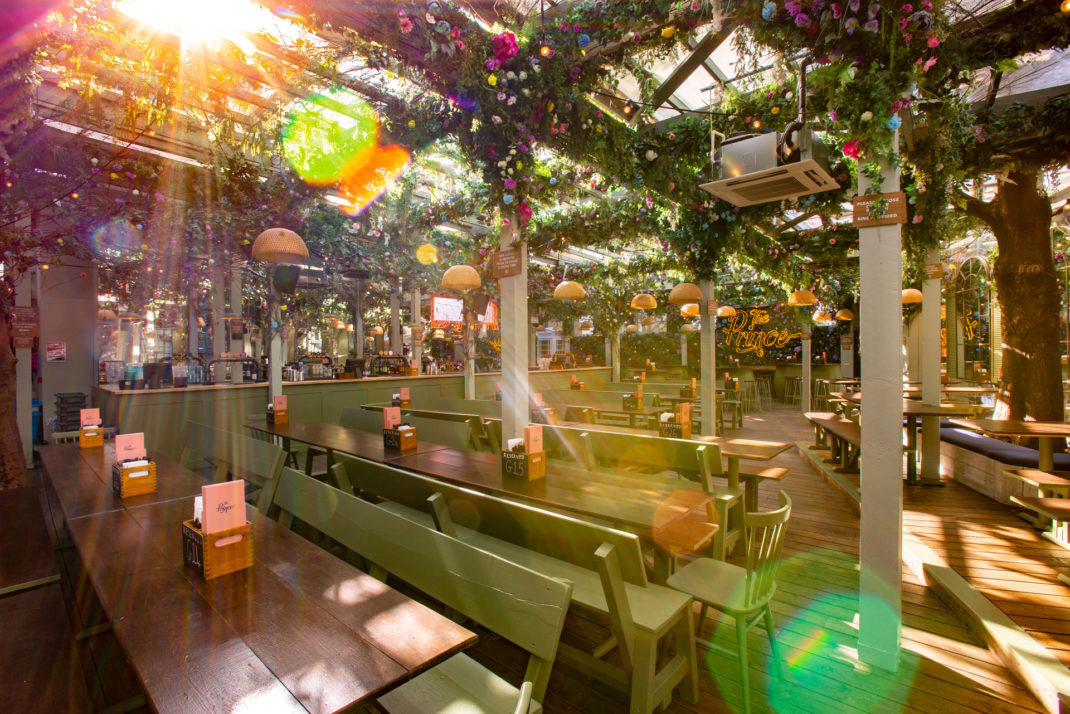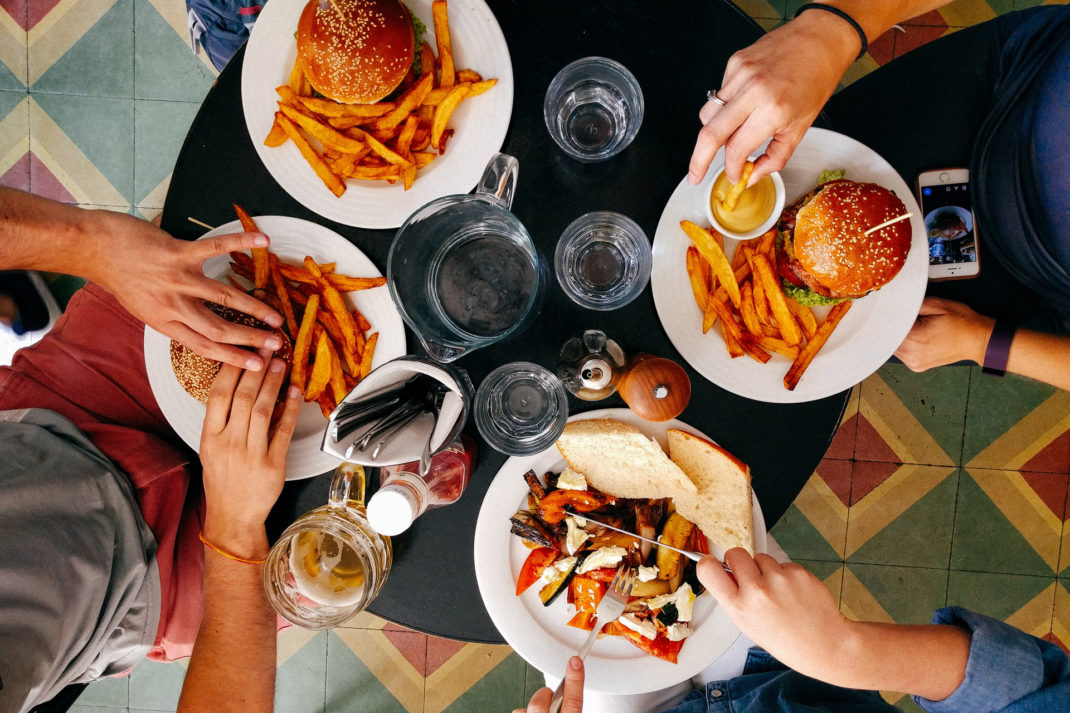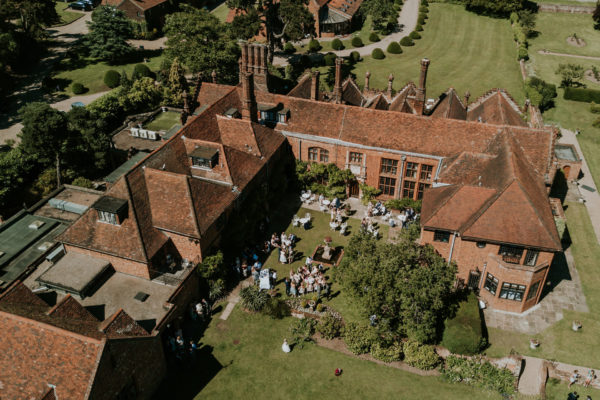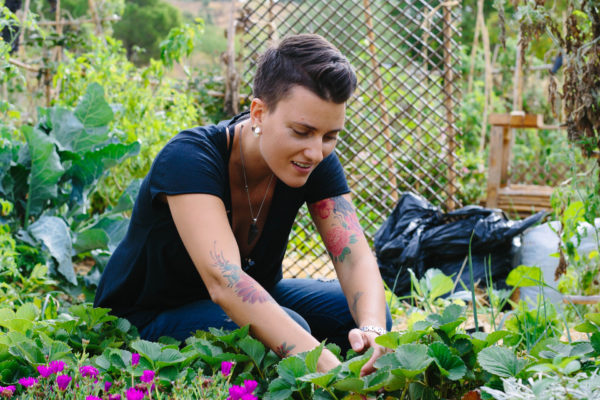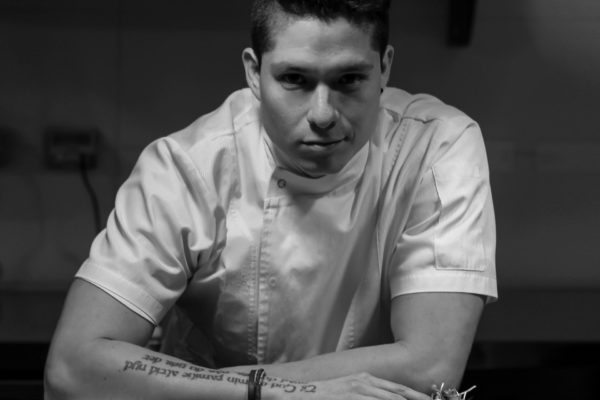
Massimo Bottura: ‘It’s important that chefs are also activists’
By
10 months ago
The Italian restaurateur is the founder of one of the world's best restaurants, Osteria Francescana
Jenny Jefferies meets Massimo Bottura, an Italian chef born in Modena, who is at the helm of acclaimed restaurant Osteria Francescana. Situated in Via Stella in Modena, the eatery has scooped up a string of awards over the years: in both 2016 and 2018 it secured the top spot in the World’s 50 Best Restaurant awards, and now it sits proudly in the Best of the Best list. The restaurant also holds three Michelin stars, plus a coveted Green Michelin Star, an accolade which highlights the venues with impressive green credentials. We hear more below.
Superstar Italian Chef Massimo Bottura On Osteria Francescana
How important was food in your childhood?
The passion and love for cooking has been passed down in my family for generations. First my grandmother, then my mother, and finally Lidia Cristoni passed on to me how to care for others through an essential act of love such as cooking. Lidia was my first collaborator when I opened Trattoria del Campazzo, the restaurant I had before Osteria Francescana. With her I understood the importance of sitting around a table, of sharing a meal as a family, of capturing beauty in the simplest things in life. Next to Lidia I learned how to cook but most of all how to eat, and she taught me how to approach the line of a kitchen professionally. With her we pulled together the puff pastry for seven years, tried and tried the tortellini filling to find the perfect one, and cooked kilos and kilos of simmered boiled meat. But we also began to innovate that tradition we loved so much, experimenting with new dishes.
Today I could not imagine my life away from the kitchen. Art, creativity, research, tradition, territory: it is all connected and has always been part of my path, constantly, and I could not do without it.
At Osteria Francescana you look at the world with the eyes of a child, from under the table and upside down. Are we all children at heart?
What distinguishes a child from an adult is the capacity for imagination, innate and unrestrained. Kids are endowed with that pure, instinctive creativity, without the filters that society imposes on you growing up. Children follow their instincts, they get carried away by their emotions. And nutrition is not mathematical, but emotional. I remember that one of the greatest emotions was when my mother brought me a huge cup of boiling milk to the table, which I would stain with just a drop of coffee and fill with sugar, and then dip pieces of dry bread into it. The simplest, but also the tastiest of dinners. The milk soup then became ‘Bread is Gold,’ a dessert that we served for years in Osteria Francescana.
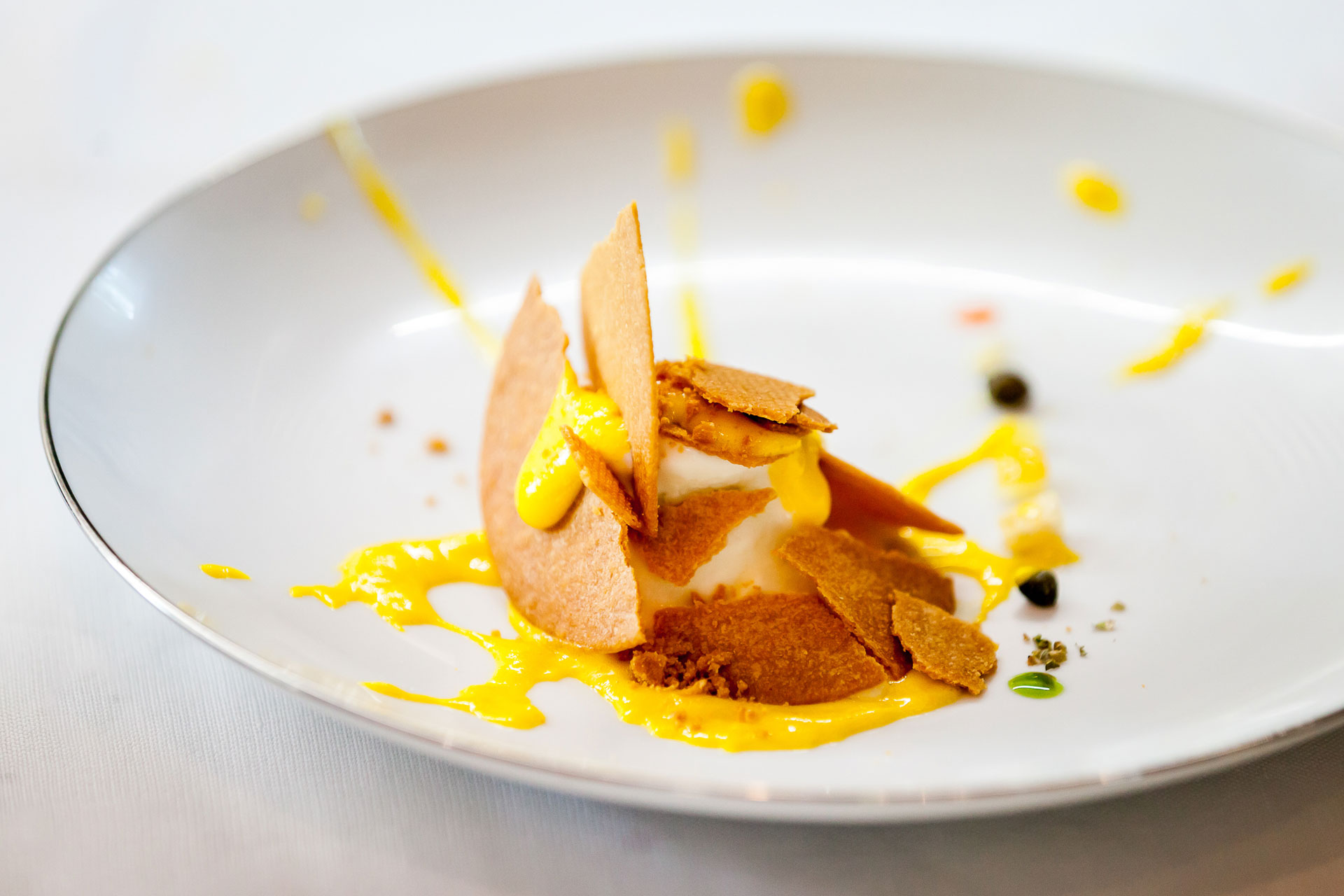
What is your favourite dish?
Passion is the dish I enjoy the most. I see the teams of my restaurants working with passion and the collaboration between the kitchen and the front of house teams are extraordinary. It has taken me over 30 years to be able to understand that beauty is not the singular ingredient, object or idea, its intrinsic value comes from its ephemeral nature. Beauty is accessible through all senses – touch, taste, smell, sight, sound – yet, its power transcends all five. As a chef, I witness beauty in the creation of recipes. A recipe has an appearance, a flavour, a perfume, a consistency, a presence in space, a nutritional value, a temperature, but most importantly reveals itself in the story it tells. Beauty inspires me.
Who has influenced you the most?
As for the people who have inspired me throughout my life, I confess I have been very lucky to have several culinary mentors. My first mentor was George Cogny, a French chef living in Piacenza. He taught me how to apply classic French technique to the ingredients from our local terroir in Emilia-Romagna. Then came Lidia Cristoni, a true Rezdora, who taught me everything about traditional cooking and how to run a clean and efficient kitchen.
Then Alain Ducasse taught me the value of using locally sourced ingredients and establishing trusting relationships with artisans, farmers, fishmongers and so forth. These lessons at Louis VX were very valuable to me and helped guide my decision to open Osteria Francescana. My last mentor was Ferran Adrià. During the summer of 2000 I was able to cook with his incredible team at El Buli. He pushed me over the edge and taught me not to be afraid of my ideas. He let the cat out of the bag, you could say.
Your restaurant holds three Michelin stars. Do you feel pressure to maintain that quality?
I had the fortune to live the life I’ve always dreamed of. Most likely because I made a choice 34 years ago to follow my heart and choose an unlikely career path based on a passion for the kitchen. Sure, the responsibility of the three red stars and the fourth green star is felt because we feel we are ambassadors of our farmers, ranchers, cheesemakers, fishermen, so we always make an ethical choice of products.
What is important to understand is that If you work everyday thinking and focusing only on the rewards, you will always be frustrated. The goal should not be the prize. The prize is the journey and the learning that comes along the way. If you can wake up every day and love what you do, then you are doing the right thing. That is the ultimate satisfaction. What is important to me now and has always been part of our mission is to create future leaders. Osteria Francescana is a laboratory of ideas and also a place to learn, to grow, and foster talent. That talent then goes out into the world, in our restaurant like Torno Subito Dubai or Singapore; to the Gucci Osterias around the world. Watching this team evolve and each player mature and come into her/his own is the best award of all.
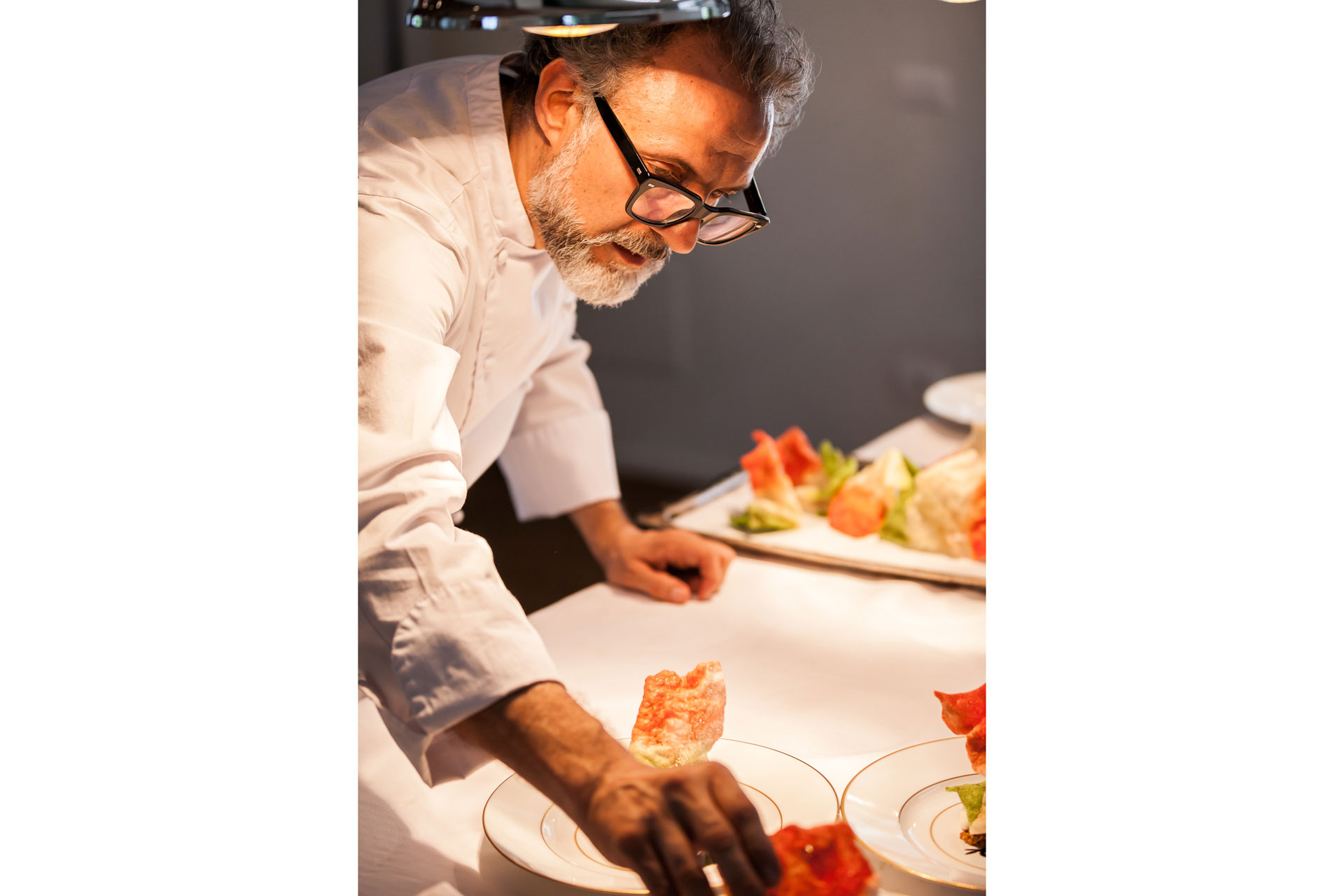
In 2015, together with your wife Lara Gilmore, you founded Food For Soul, a non-profit association. What is the project all about?
In 2014 when Italy was preparing for Expo in Milan 2015, I saw another opportunity to use my voice. With the help of the Catholic association Caritas, and friends in the world of design, art and the culinary world, we created a new format for a soup kitchen, The Refettorio Ambrosiano. Everyday, we collected food waste and worked to make it edible. I invited chefs from all over the world to leave their recipes at home and challenge them to cook banana peels, ugly carrots and wrinkled potatoes. I wanted them to be as aware as I became that food waste and hunger are two sides of the same coin.
After the experience at the Refettorio Ambrosiano, my wife and I decided to continue this work and we founded the Food for Soul non-profit organisation to raise the same awareness that has risen in me during the Expo in Milan. Through Food for Soul, we want to promote a call for action against food waste and hunger. When you invest in ideas, beauty and hospitality, you are bringing everyone together to shape the future; to make a difference; to be part of the solution. We are creating a dialogue and learning that sharing a meal is a gesture of inclusion. My mom used to say so! And sharing is the biggest joy in life.
In 2020, Osteria Francescana was awarded a Michelin Green Star. You say ‘to feed the planet, first you have to fight the waste’, how are you implementing this initiative?
Our kitchens do everything they can to use every part of the animal, fish, cheese, fruit and vegetables. When our menu prep produces food trimming that in most places goes to waste, what do we do? We do a creative exercise where we prepare staff meals using all the leftovers from our preparations. Osteria Francescana, Casa Maria Luigia and Franceschetta are now zero-waste kitchens. I teach my cooks to have a new relationship with food.
We can look at an older carrot, or a brown banana, stale bread or a crust of Parmigiano Reggiano and say, ‘hello, what can I do for you?’. We ask ourselves questions and the answers are most of the time unexpected solutions. I always keep the door open for the unexpected. These ingredients now represent new opportunities for us, new friends. We really have to understand that sustainability starts with how you plan for the future. In recent years, chefs have been asked to look around, to get out of their kitchens and engage their knowledge and visibility to improve our food system. Not only at the level of food waste, but also at the level of malnutrition, product sustainability and ingredient goodness. It is so important to me that chefs are also activists, that they use their image to create change.

